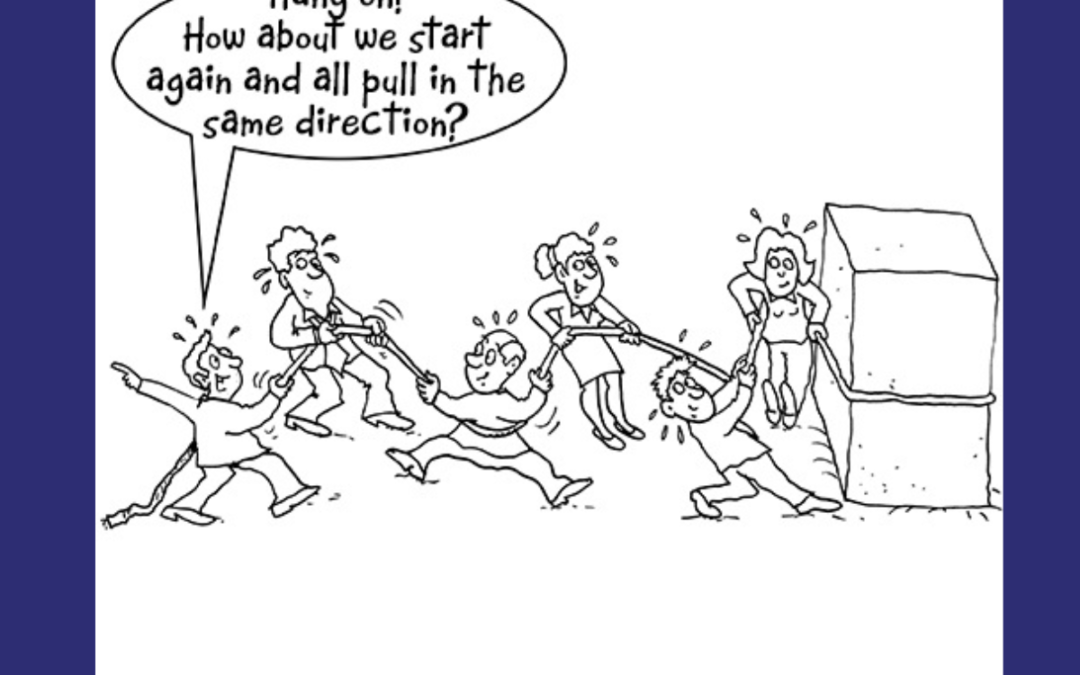Recently I led an open leadership development session for local business leaders with my horses and experienced first-hand the powerful impact of effective teamwork. Despite being strangers, the participants managed to guide a horse around an obstacle course by working together seamlessly. This made me wonder why teams in the workplace often underperform while a temporary group of people can excel.
In this podcast, I delve into the criticality of teamwork in our modern economy. The shift from industrial to service and information societies, coupled with the rate of change and explosion of knowledge, has made it impossible for individuals to keep pace alone. It’s evident that harnessing the power of teams gives companies a competitive edge.
All teams, at some point, struggle due to various factors, such as lack of direction or clear roles but what exactly constitutes an underperforming team? That was something I wanted to explore and I discovered that and under-perfoming team is one “that falls short of its goals or required performance level”. Therefore, constant assessment and feedback are crucial for improvement.
In 1959 Frederick Herzberg conducted some ground-breaking research on why teams falter. Known as the Hygiene Theory it separates job satisfaction factors (motivating factors) from job dissatisfaction factors (hygiene factors). Surprisingly, these are independent; improving one doesn’t necessarily improve the other. For instance, a pay rise won’t always boost motivation. This distinction is crucial for leaders to understand when they need to motivate and engage team members.
Richard Hackman’s work also echoes the importance of teams having a clear purpose and being self-organised albeit sometimes challenged by organisational structures. In future discussions, I’ll explore the idea of dynamic teams—bringing together the right mix of people at the right times for specific projects, which can be highly effective in execution and innovation.
So how would you know if a team is underperforming? Typically, you might notice absenteeism, conflict, lack of motivation, and silo mentality thinking. However, the five most common reasons for underperformance include:
- Lack of clarity: Teams need clear responsibilities and deadlines.
- Lack of ability: Teams require appropriate skills and resources.
- Lack of confidence: Team fit and adjustment to roles are critical.
- Lack of direction: Clear goals aligned with the organization’s purpose are necessary.
- Lack of motivation: Understanding and addressing the root causes is essential.
Complex matrix management structures when not executed effectively can also create under performance, especially when the various business leaders have no compassion and empathy for the conflicting priorities that team member can find themselves with. However, when done well matrix management can foster collaboration and lead to extra-ordinary results as everyone starts pulling together in the same manner.
Warren Bennis’s believed that leaders need to role model the behaviours they desire in effective team members. He cites that the “management of attention, meaning, trust, and self” are the behaviours that managers must master. Additionally, effective communication, understanding the team’s history, and building trust are also vital for leading successful teams and avoiding under-performance.
Show Notes:
Here are the highlights from this episode:
(02:26) Real-Life Example
(08:10) Identifying Underperformance
(15:12) Addressing Underperformance
(18:12) Teamwork is essential

Julia Felton (aka The Business Wrangler) is the founder of Business HorsePower. Business leaders, entrepreneurs and executives hire her to accelerate their business performance by harnessing the energy of their people to work more collaboratively together. By aligning purpose with actions the team achieves exponential results as everyone starts pulling in the same direction.
Julia believes that business is a force for good and through designing purpose-driven businesses that leverage the laws of nature, and the herd, you can create businesses founded on the principles of connection, collaboration and community that make a significant impact in the world.

